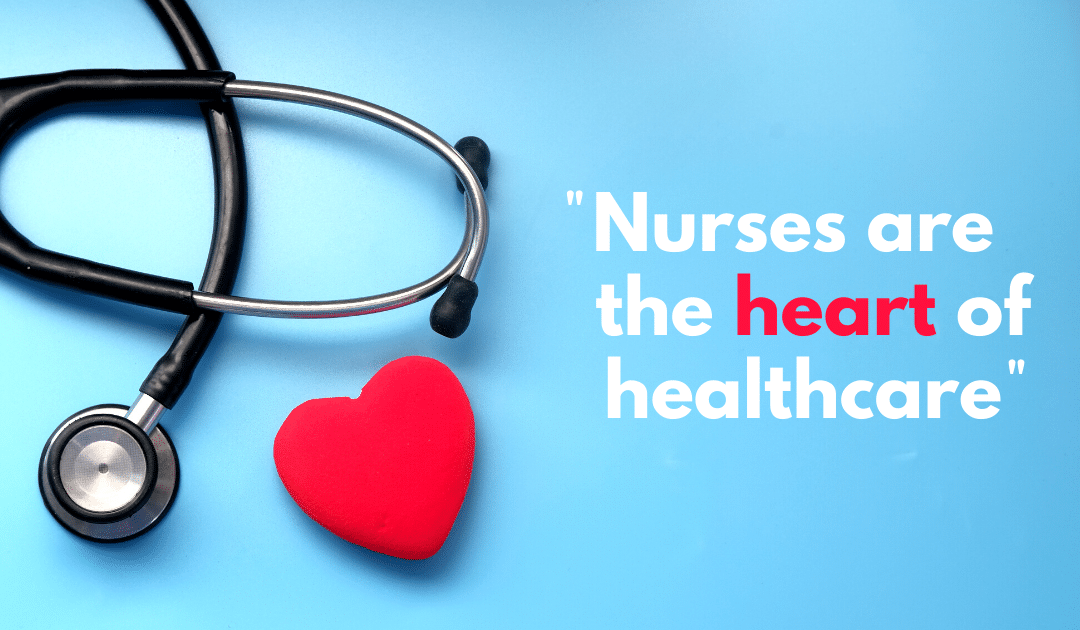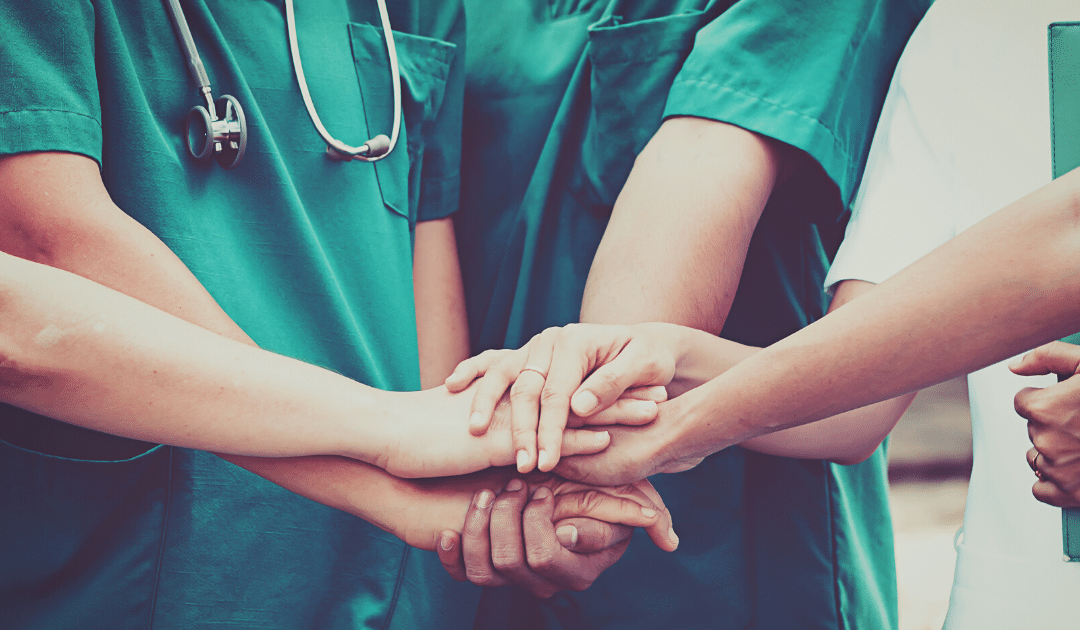
by California Casualty | Nurses |
Long shifts, overnights, and demanding workloads are all a part of being a nurse. But no matter if you’re a 10-year veteran or just starting out, it’s never easy to miss the holidays because you have a shift.
Whether it’s a Thanksgiving or Christmas with the family, a romantic New Year’s Eve or Valentine’s dinner with your significant other, or a fun Memorial or Labor Day weekend away with your friends; missing out on celebrations is just another part of working in a career dedicated to service.
But you don’t always have to miss out on the fun. You do have some control over when you work and you can also find creative ways to celebrate! Here’s what you need to know when the next holiday rolls around.
The schedule gets decided early. Make adjustments in advance.
Holidays are often divided up early in the year. Sometimes hospitals or nursing facilities follow seniority when assigning holidays. Other times, they are divided evenly among the staff. You can volunteer to work holidays that aren’t as important to you to get off for others that are. Talk to your co-workers. Put in any requests for switches early on. You’ll have the best chance of a schedule adjustment if you make it weeks or months in advance of that 12-hour shift.
Prepare your family for your holiday work schedule.
You will likely hear loved ones complain that you are missing important family gatherings. Help your family understand how important your job is, and plan an alternative celebration. For example, you may not be able to join the family for Thanksgiving dinner but you could make it for a pre-Thanksgiving Wednesday night gathering or Black Friday shopping. Be part of the celebration any way you can. Ask them to save you some leftovers so you can enjoy that famous green bean casserole after the fact.
Restructure your holiday routine to minimize commitments.
Don’t offer to host the annual family holiday gathering or RSVP to many parties. Know that you have to work during the holidays and your free time is valuable. Scheduling too many commitments can easily cause you to burn out. Practice self-care during the holiday season. Do your best to reduce and relieve stress so that you will be there for your patients, your family, and most importantly, yourself.
Some holidays are busier than others at work. Prepare accordingly.
If you are an emergency nurse working a holiday like the 4th of July, prepare for an active night. Celebrations that include fireworks and sparklers could lead to injury. Also in July, you might experience the July effect, the time when new residents begin treating patients. As a nurse, you will want to support them to ensure there are no mistakes.
Expect senior leadership coverage to be lighter.
Most senior leaders will be at home, celebrating with their families on holidays. But they will be accessible. Make sure that you know how to reach them if there is a need.
It pays to work on holidays.
Many employers offer overtime or double time to work a holiday shift. Some also provide a free holiday meal. Enjoy those holiday perks and save that extra pay for something fun. You deserve it!
Technology can keep you connected.
If there is anything we learned from 2020, it’s how to celebrate holidays virtually. You can check in on your family celebrations while on your break via video chat or by sending photos back and forth.
Remember that you’re not the only one working the holiday.
Up to a quarter of all Americans work at least one holiday in the winter, according to the Daily Nurse. This includes your coworkers as well as restaurant staff, retail workers, police officers, and firefighters.
Your patients are also missing the celebration.
You can spread cheer with some holiday-themed scrubs and a conversation about your patients’ holiday traditions. Encourage families to bring in holiday decorations for their loved one’s room. If you have the time, help patients to video chat with their loved ones. It will make everyone feel great!
Just because you are working over the holidays doesn’t mean you can’t celebrate with your work-family. You have an automatic guestlist for any holiday gathering at work. Plan a pot luck dinner where everyone brings a favorite from their family’s Thanksgiving celebration. Arrange a Secret Santa gift exchange with your co-workers. Toast to a New Year together and share your resolutions. Deck out in red, white, and blue for the 4th of July. Decorate the nurses’ station, etc.
If you start to get down about missing another holiday – remember your “why.” “When a person decides to become a nurse, they make the most important decision of their lives. They choose to dedicate themselves to the care of others.” – Margaret Harvey
This article is furnished by California Casualty, providing auto and home insurance to educators, law enforcement officers, firefighters, and nurses. Get a quote at 1.866.704.8614 or www.calcas.com.

by California Casualty | Nurses |
The 9-to-5 world doesn’t exist when you’re a nurse. You’re pulling 12-hour shifts and likely working for multiple days or nights in a row, just to have a few days off and then do it all over again.
So, how do you prepare and get used to such a strenuous schedule? Read on and we’ll share the tips that could make your shifts (you know, the ones that feel like they are never going to end?) seem a little easier.
Tip #1: Eat a well-balanced diet.
The better you eat, the better you’ll feel. That’s why we recommend bringing your breakfast, lunch, or dinner rather than trying to pick up something at the hospital or nearby.
-
- Bring healthy food that you’re excited to eat. Try fun and healthy recipes like overnight oats with peanut butter and honey or pre-cut veggies with a hummus dip.
- Bring enough food to satisfy your cravings. The last thing you want to do is head to the vending machine because you’re hungry.
- No matter what your shift, eat a meal before you leave home. That way if you miss your first break, you won’t be starving.
Tip #2: Stay hydrated – at work and at home.
Remembering to drink enough water is tough, especially when you’re in the middle of a busy shift. But staying hydrated is important. Not only does it help flush your body of any toxins, it helps you avoid that dehydration headache.
-
- Calculate how much water you should drink daily. Divide your weight by two to get the number of ounces. For example, if you weigh 140 lbs., you should drink 70 ounces of water a day.
- Invest in a big water bottle and set a goal to refill it every few hours.
- If your hospital allows it, keep the water bottle by the nurse’s station or somewhere you pass frequently. If not, make a plan for how you will access it.
- Keep up the routine at home as well as work until drinking water becomes a habit.
Tip #3: Make sleep a priority so that you get enough.
Adults need between 7 and 9 hours of sleep a night, according to the National Sleep Foundation. Getting enough sleep will allow you to function at your best when you’re at work.
-
- Set yourself up for success. Stick to the same sleep schedule every day, including your days off.
- Choose a relaxing routine that makes it easier to fall asleep. Disconnect from your phone and electronics a half an hour or more before bedtime. Read or enjoy a warm bath. Make sure you have a comfortable mattress.
- Skip the caffeine if you’re planning to sleep in the next 6-7 hours.
- Use a sleep mask to block daylight.
- If you’re working the night shift and you’re having trouble staying awake, try a coffee nap. Drink a cup of coffee, then immediately nap for 20 minutes. You should wake up refreshed.
Tip #4: Plan your wardrobe so you are dressed comfortably.
What you wear does matter for a 12-hour shift. Choosing comfort as well as style will help you feel your best.
-
- Set your clothes out the night before. Include a jacket or sweater because chances are, the climate in the hospital is cold.
- Choose scrubs that are comfortable and shoes that are easy to stand and walk-in.
- Many nurses wear compression socks to help prevent lower leg swelling, an occupational hazard for nurses who are constantly on their feet.
Tip #5: Make a list so you don’t forget anything.
Even if it’s something you bring every shift, there will be times when you might forget it. Making a list takes the pressure off so that you don’t have to remember everything.
-
- Keep a list of the essentials and put it by the front door or by your bag.
- Your list may include your ID badge, keys, phone and charger, water bottle, stethoscope, extra scrubs, and hand lotion to counteract the effect of those alcohol-based hand sanitizers.
Tip #6: Schedule out your days to easily fit in errands and activities.
When you work for three straight days, it’s as if you’re on permanent hold. Stores are generally closed after work making it hard to run errands or do banking. Your friends also don’t share your unusual schedule. It’s a bit challenging, but you can make it work.
-
- Take advantage of 24/7 banking, call centers, and other options to reach out as needed.
- Schedule social outings on your days off; trying to do so on a workday will just create additional stress. Use the chance to meet a friend with a traditional schedule for lunch during his or her workday and your day off.
- Schedule in time to do what is important to you, including exercise and spending time with loved ones.
Tip #7: BUT – Don’t overschedule yourself.
It’s tempting to pack in as much as possible on your days off or your days at work. Keep your schedule manageable with enough downtime to feel good.
-
- Think before picking up extra shifts at work. Do you really want to do this?
- Pause before agreeing to social plans. There are only 24 hours in a day and sometimes those plans can wait.
Tip #8. And lastly, practice self-care (you deserve it).
Nurses are always looking out and helping others, but as a nurse, you need to remember to protect your well-being, too. You’ll want to focus on self-care.
-
- Schedule time to relax, meditate or pursue a hobby you enjoy.
- Take steps to manage your stress at home and at work.
- Keep work and home separate. Worrying about your patients is natural but not productive for your mental well-being at home.
- Remember to exercise. Take the stairs instead of the elevator at work. Park further away for a long walk to your car. Combine social time with exercise and work out with a friend on your days off.
- Surround yourself with positive people. Practice gratitude and you’ll find plenty to appreciate in your life.
- Finally, working long hours can lead to loneliness, anxiety, and depression. If you’re unable to concentrate, have negative self-talk, or are not feeling your best, consult your primary care provider. In order to help others, you need to make sure to help yourself.
This article is furnished by California Casualty, providing auto and home insurance to educators, law enforcement officers, firefighters, and nurses. Get a quote at 1.866.704.8614 or www.calcas.com.

by California Casualty | Educators, Nurses |
The working life of a school nurse has always been hectic – treating schoolyard injuries, doing health screenings, helping address mental health issues and so much more. And then Covid arrived, making the “old days” seem quaint.
School nurses’ response to the pandemic has underscored what we already know: they are health care superstars. In these last 12 months of disruption and crisis, school nurses have heroically taken on even more responsibility, served as public health advisors for school boards and administrators, and kept students and communities safe through the pandemic.
Here are some lessons we learned about the role of the school nurse in 2021.
Nurses are critical in safe reopening
As districts across the country continue reopening with varying phases, plans, and protocols, nurses are critical to their doing so safely. As the frontline of student safety, they’re on point for best practices for reopening policies, temperature testing, screening, mask distribution, health and safety guidelines, ongoing monitoring, and more.
They are a pillar of public health
Nurses are the health experts that school communities look to for guidance. They answer questions from parents, staff, and students. Nurses have always been health educators, but especially now, that role is so important in disseminating local health policies and guidelines, training staff on COVID-19 infection control, helping staff do self-care, and educating the wider community. Many are involved in wider public health initiatives or organizations.
Their jobs are complex
While COVID-19 prevention and mitigation efforts are at the top of their list, nurses still must attend to all the other illnesses, injuries and student concerns that they always have. School nurses are a lifeline for students with chronic conditions, often procuring their equipment and medications, drafting student health plans, and helping them manage their conditions. They also reach out to at-risk students and help with deliveries (such as medication and food) to those in need. They often serve hundreds of students, all with different and changing needs.
Nurses’ expertise is unmatched
More than any other role in the education system, nurses are the health and wellness linchpin. Their training and skills go beyond everyday health care. They must have great listening and communication skills, be life-long learners, be empathetic and caring, think quickly, and have great judgment and problem-solving skills. They’re consummate team players, using interpersonal skills, professionalism, and attention to detail. And increasingly so, they must be knowledgeable about new public health threats and developments – connecting the dots between local and national trends.
They’re important to a student’s overall success
Good health is foundational to a student’s ability to thrive. When they’re healthy, they’re better able to excel in their studies, develop their interests, pursue their dreams and build relationships. Nurses support student’s success by providing care and support – to students’ physical, emotional, mental health as well as social health needs. They provide assessment, intervention, and follow-up for all students.
They can deliver care anywhere
School nurses have always provided care and support in person, but now they’re doing it remotely – or using a combo of the two. They have had to “go virtual” basically overnight and work to ensure kids didn’t face a gap in care. They’ve had to figure out fixes for students who need ongoing care but maybe don’t have digital access. They have to make the call on what care can be done remotely and what requires in-person attention. Having the right tools and the continued support of their districts and administrators remains important as ever.
Going forward, these important lessons will inform how the school nurse’s role evolves. Being at the frontlines of how COVID-19 has affected communities, schools, and students, the voice of the nurse will be critical in shaping health care and public health for decades to come. Thank you, school nurses, for all that you do to keep your schools and communities healthy and safe!
This article is furnished by California Casualty, providing auto and home insurance to educators, law enforcement officers, firefighters, and nurses. Get a quote at 1.866.704.8614 or www.calcas.com.

by California Casualty | Nurses |
1. “As a nurse, we have the opportunity to heal the mind, soul, heart, and body of our patients. They may forget your name but they will never forget how you made them feel.” – Maya Angelou
2. “Nurses are the heart of healthcare” – Donna Wilk Cardillo
3. “To know even one life has breathed easier because you have lived, this is to have succeeded.” – Ralph Waldo Emerson
4. “Nurses are angels in comfortable shoes.” – Unknown
5. “Save one life, you’re a hero. Save a hundred lives, you’re a nurse.” – Unknown
6. “Nurses dispense comfort, compassion, and caring without even a prescription. ” – Val Saintsbury
7. “The happiest people I know are those who lose themselves in the service of there.” – Gordon B. Hinckley
8. “I think a hero is any person really intent on making this a better place for all people.” – Maya Angelou
9. “Nursing is a work of heart.” – Unknown
10. “Nursing is an art: and if is to be made an art, it requires an exclusive devotion as hard a preparation, as any painter’s or sculptor’s work; for what is the having to do with dead canvas or dead marble, compared with having to do with the living body.” – Florence Nightingale
11. “To do what nobody else will do, a way that nobody else can do, in spite of all we go through; that is to be a nurse.” – Rawzi Williams
12. “A nurse will always give us hope, an angel with a stethoscope.” – Carrie Latet
13. “The nurse is temporarily the consciousness of the unconscious, the love of life for the suicidal, the leg of the amputee, the eyes of the newly bling, a means of locomotions for the infant, the knowledge and confidence of the young mother, and a voice for those too weak to speak.” – Virginia Henderson
14. “Nurses: one of the few blessings of being ill.” – Sara Moss-Wolfe
15. “When you are a nurse you know that every day you will touch a life or a life will touch your” – Unknown
16. “America’s nurses are the beating heart of our medical system.” – Barack Obama
17. “Let us never consider ourselves finished nurses… we must be learning all of our lives” – Florence Nightingale
18. “Constant attention by a good nurse may be just as important as a major operation by a surgeon.” — Dag Hammarskjold
19. “Being a nurse is weird: I can keep a poker face through trauma, but I have a mental breakdown over losing my favorite pen.” – Unknown
20. “When I think about all the patients and their loved ones that I have worked with over the years, I know most of them don’t remember me, nor I them, but I do know that I gave a little piece of myself to each of them and they to me and those threads make up the beautiful tapestry in my mind that is my career in nursing.” – Donna Wilk Cardillo
21. “A nurse is compassion in scrubs.” – Lexie Saige
22. “Being a nurse means to hold all your own tears and start drawing smiles on people’s faces. Nursing is sacrificing.” – Dana Basem
23. “Too often we underestimate the power of a touch, a smile, a kind word, a listening ear, an honest compliment, or the smallest act of caring, all of which have the potential to turn a life around.” – Leo Buscaglia
24. “Nurses are there when the last breath is taken, and nurses are there when the first breath is taken. Although it is more enjoyable to celebrate the birth, it is just as important to comfort in death.” – Christine Bell
25. “Bound by paperwork, shot on hands, sleep, and energy… nurses are rarely short on caring.” – Sharon Hudacek
26. “The meaning of life is to find your gift. The purpose of life is to give it away.” – Shakespeare
27. “When a person decides to become a nurse, they make the most important decision of their lives. They choose to dedicate themselves to the care of others.” – Margaret Harvey
28. “The best way to find yourself is to lose yourself in the service of others.” – Mahatma Gandhi
29. “Doctors diagnose. Nurses cure.” – Unknown
30. “Caring about others, running the risk of feeling, and leaving an impact on people, brings happiness.” – Harold Kushner
31. “Remember: Nurses are like icebergs. At any one time, you are only seeing what they are actually doing.” – Ian Miller
32. “Caring is the essence of nursing.” -Jean Watson
33. “Whether a person is male or female, a nurse is a nurse.” – Gary Veale
34. “Nursing is not for the faint of heart nor the empty of heart.” – Unknown
35. “Have a heart that never hardens, a temper that never tires, a touch that never hurts.” – Charles Dickens
36. “The character of a nurse is just as important as the knowledge he/she possesses.” – Carolyn Jarvis
37. “From caring comes courage.” – Lao Tzu
38. “A nurse is not what you do. It is what you are… I am a nurse. It’s not what I do, it’s what I AM.” – Unknown
39. “To make a difference in someone’s life you don’t have to be brilliant, rich, beautiful, or perfect. You just have to care.” – Mandy Hale
40. “Thank you, Nurses! Because of you, we live in a happier, healthier world.” – Unknown
This article is furnished by California Casualty, providing auto and home insurance to educators, law enforcement officers, firefighters, and nurses. Get a quote at 1.866.704.8614 or www.calcas.com.

by California Casualty | Nurses |
Women’s History Month celebrates the innumerable contributions of women to American society. Given that 91% of nurses are women (and an even higher percentage historically) – it seems fitting to honor women’s history by looking back on how the nursing profession began and grew in the U.S.
This profession has been and continues to be built by a legion of extraordinary women who helped shape modern health care as we know it today. These pioneering figures fought for the care and treatment of the sick; developed a rigorous educational and professional nursing practice; invented new techniques, technologies, and systems; advanced gender and racial equality; and brought their skills and expertise to bear on many other fields.
Those advancements and achievements are evident in this abbreviated timeline of nursing in America – with some surprises along the way!
A Nursing Timeline
1800 – 1900
1820 – Florence Nightingale is born in Florence, Italy. She will become a social reformer, statistician, and founder of modern nursing. She trained as a nurse in Egypt, Germany, and France and also worked in Turkey before returning to the U.K.
1841 – Dorthea Dix testifies in legislature about the poor treatment of patients with mental illness. Her work as an advocate of the mentally ill would eventually create the first mental asylums in the US. She would go on to serve as Superintendent of Army Nurses during the Civil War.
1859 – Florence Nightingale publishes her views on nursing care in “Notes on Nursing,” which informs the tenets of modern nursing practice.
1861 – 1865 – During the Civil War, the American Army Nurse Corps triages and treats soldiers.
1873 – 1889 – The Bellevue Hospital School of Nursing is founded in New York City as the first nursing school in the United States. Shortly after, training schools are established in Connecticut and Boston.
1881 – Clara Barton founds and becomes the first president of the American Red Cross.
1886 – “The Nightingale,” the first American nursing journal, is established.
1896 – The Nurses Associated Alumnae holds its first meeting, with an early goal of improving nursing care for American soldiers. It would later be renamed the American Nurses Association and become one of the largest nursing organizations in the US.
1900 – 1950
1901 – The United States Army Nurse Corps is established.
1902 – New York City Board of Education hires Lina Rogers Struthers as North America’s first school nurse.
1908 – The United States Navy Nurse Corps is established.
1908 – The University of Minnesota School of Nursing awards its first bachelor’s degree in nursing, setting a new standard in nurse training.
1918 – Lenah Higbee is the first living woman to be awarded the Navy Cross for distinguished service.
1918 – Frances Reed Elliot enrolls as the first African-American in the American Red Cross Nursing Service.
1918 – Viola Pettus, an African-American nurse in Texas, garners fame for her care of Spanish Flu victims, including members of the Ku Klux Klan.
1919 – 1923 – Mary Breckinridge, founder of the Frontier Nursing Service, rides 700 miles on horseback to survey the health needs of rural Kentuckians.
1938 – The Nurses Memorial in Arlington National Cemetery is established, created to honor nurses who served during World War I. Over 600 nurses are buried there.
1941 – 1945 – More than 59,000 American women serve in the US Army Nurse Corps and over 11,000 women serve in the US Navy Nurse Corps during World War II.
1943 – Delaware is the first state to admit African-American nurses to membership.
1950 – Present
1951 – The National Association of Colored Graduate Nurses merges with the American Nurses Association.
1951 – Vocational Nursing standards for education and the LPN / LVN level of nursing is established.
1954 – One of the country’s first Ph.D. programs in nursing is offered at the University of Pittsburgh.
1955 – Elizabeth Lipford Kent becomes the first African-American to earn a Ph.D. in nursing.
1955 – The US Army Nurse Corps admits Edward L.T. Lyon, its first male nurse.
1955 – The nation’s first master’s degree in nursing is granted at Columbia University School of Nursing.
1959 – Dee O’Hara becomes the first aerospace nurse to NASA’s first astronauts, laying the groundwork of the field of Space nursing.
1963 – Ruby Bradley retires from the US Army Nurse Corps with 34 medals and citations for bravery.
1965 – The first nurse practitioner (NP) role is established.
1965 – The US Navy Nurse Corps admits its first male nurse.
1974 – Florence Wald, dean at Yale Nursing School, founds Connecticut Hospice, establishing the US hospice movement.
1977 – The M. Elizabeth Carnegie Nursing Archives is established in Virginia, serving as the only archives in the States dedicated to minority nurses.
1979 – The first clinical doctorate – a nursing doctorate (ND) – is established at Case Western Reserve University, OH.
1980 – Viola Davis Brown is the first African-American nurse to lead a state office of public nursing in the U.S.
1990 – The Department of Health and Human Services creates a commission to address the national nursing shortage.
1992 – Eddie Bernice Johnson is the first nurse elected to the U.S. Congress.
2010 – The Institute of Medicine issues a critical report, The Future of Nursing, which contains evidence-based recommendations to lead change for improved health care.
2014 – The Affordable Care Act becomes law, resulting in an estimated 8 million new health insurance enrollees. This spike in health care utilization leads to a demand for travel nurses that reaches a 20-year high.
2019 – The number of registered nurses (RNs) crosses the 4 million threshold, with a total of 4,096,607 in the U.S. as of October 2019.
2020 – The World Health Organization (WHO) declared 2020 the International Year of the Nurse and the Midwife. The coronavirus disease (COVID-19) pandemic showed the world that nurses are the cornerstone of health care.
Celebrating Women’s History Month wouldn’t be complete without acknowledging nurses’ immense contributions to the medical field, public health, and gender and racial equality. In just 200 years, they’ve gone from a role primarily of “caretakers” to highly skilled and trained professionals who are advancing health care in broad and exciting ways.
What’s next for nurses? Hard to tell, but we know that whatever it is — it’s going to be amazing!
This article is furnished by California Casualty, providing auto and home insurance to educators, law enforcement officers, firefighters, and nurses. Get a quote at 1.866.704.8614 or www.calcas.com.

by California Casualty | Nurses |
If you’re a nurse, America owes you a debt of gratitude. Since early last year, you have been on the frontlines of COVID-19 – treating the sick, caring at the bedside, teaching us how to stay healthy, advocating for your patients, and serving as liaison to their families.
We know you’re stressed, you’re tired and you’ve been running on fumes for months. But we also know that you’re strong and incredibly resilient! You’re that bright light of compassionate care and humanity during a scary time. You’re the ones we trust implicitly.
And for that reason, we ask that you remember to take care of yourself, too. Not surprisingly, pandemic stress is affecting nurses’ mental and physical health at unprecedented levels. If you’re feeling overwhelmed or depleted, here are some resources and steps you can take to protect your health and well-being.
-
- Nurture your immune system. Your immune system is taking a battering right now. Do what you can to soothe and strengthen it so it can keep you healthy. Nourish yourself with healthy foods, regular exercise, and enough sleep (when you can!).
- Get out in nature as often as possible. Studies show that spending time in nature improves mental health and reduces blood pressure, stress hormones, and muscle tension.
- Check out the Well-being Initiative for free resources such as video calls for peer support, self-assessment tools, hotlines, a “happy app” and writing-as-therapy. The Initiative was developed by the American Nurses Foundation in partnership with a number of nursing organizations.
- Practice mindfulness and/or meditation, which can help lower stress levels and keep you tuned into your physical and psychological state. There are plenty of books and free apps to get you started.
- Breathe. By learning breathing techniques for stress relief, you have a powerful tool you can use anytime, anywhere.
- Get support when you need it. Talk with friends, family, peers, or even a professional, depending on your level of needed support. If your workplace has an Employee Assistance Program and you could benefit from the support, sign up!
- Stay connected. Humans are built for social connection. Even if you’re an introvert, make time for periodic phone calls or web chats with cherished friends and family.
- Read positive things. Avoid doom-scrolling, and start your day with inspirational reading or anything else that uplifts you.
- Advocate for your and your colleagues’ health. Make your voice heard in terms of safety protocols and support at your workplace.
- Take time and space to process your feelings. You may feel nothing or all the things. If the latter, when appropriate, take time to process, meltdown, cry, whatever you need to do. No human is equipped to carry this much grief and stress.
- Lean on your nurse leaders. Getting the right support is more important than ever. Collaboration, support, and community will get you and your colleagues through.
- Reconnect to people and things you love. Joy does amazing things for health. Try to find time for small joys and delights – this could be something you love doing, seeing a loved one, or returning to a long-forgotten hobby.
- Lean into your community. Show up for your co-workers and give them support when your “wellness” tank is filled up. Every health care worker knows the struggle right now, so sometimes just an “I know what you’re going through and I’m here if you need anything,” can make all the difference.
Often, it’s those who do so much for others who put their own needs last. Ask for help and support when you need it – and let family members, friends, neighbors, and others know what they can do to help (because they want to!). The world needs its health care heroes right now – and we want you to be healthy, strong, and safe!
This article is furnished by California Casualty, providing auto and home insurance to educators, law enforcement officers, firefighters, and nurses. Get a quote at 1.866.704.8614 or www.calcas.com.






